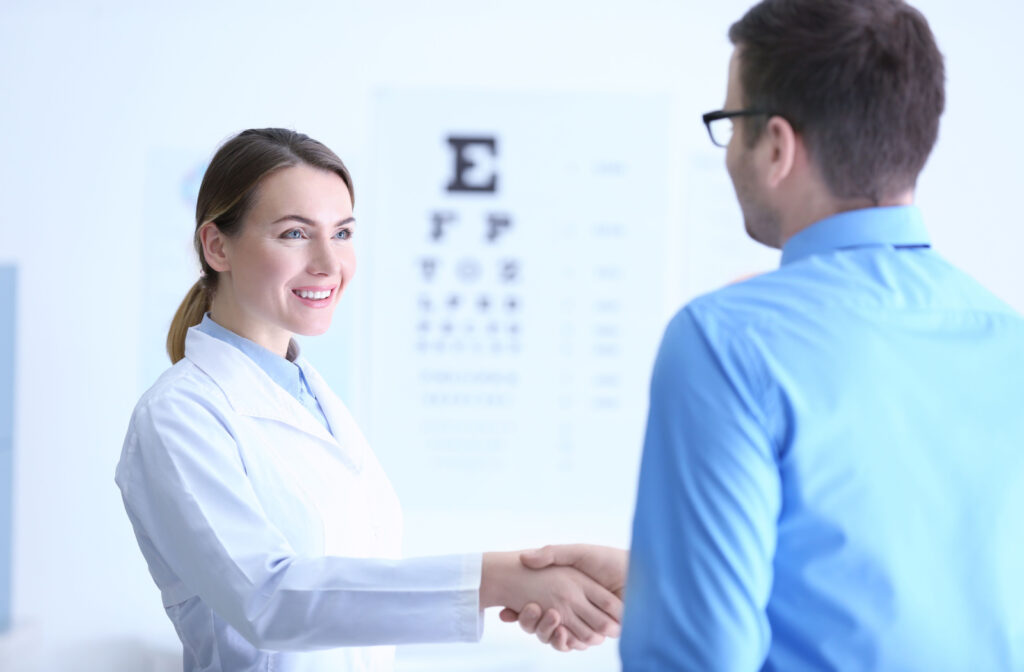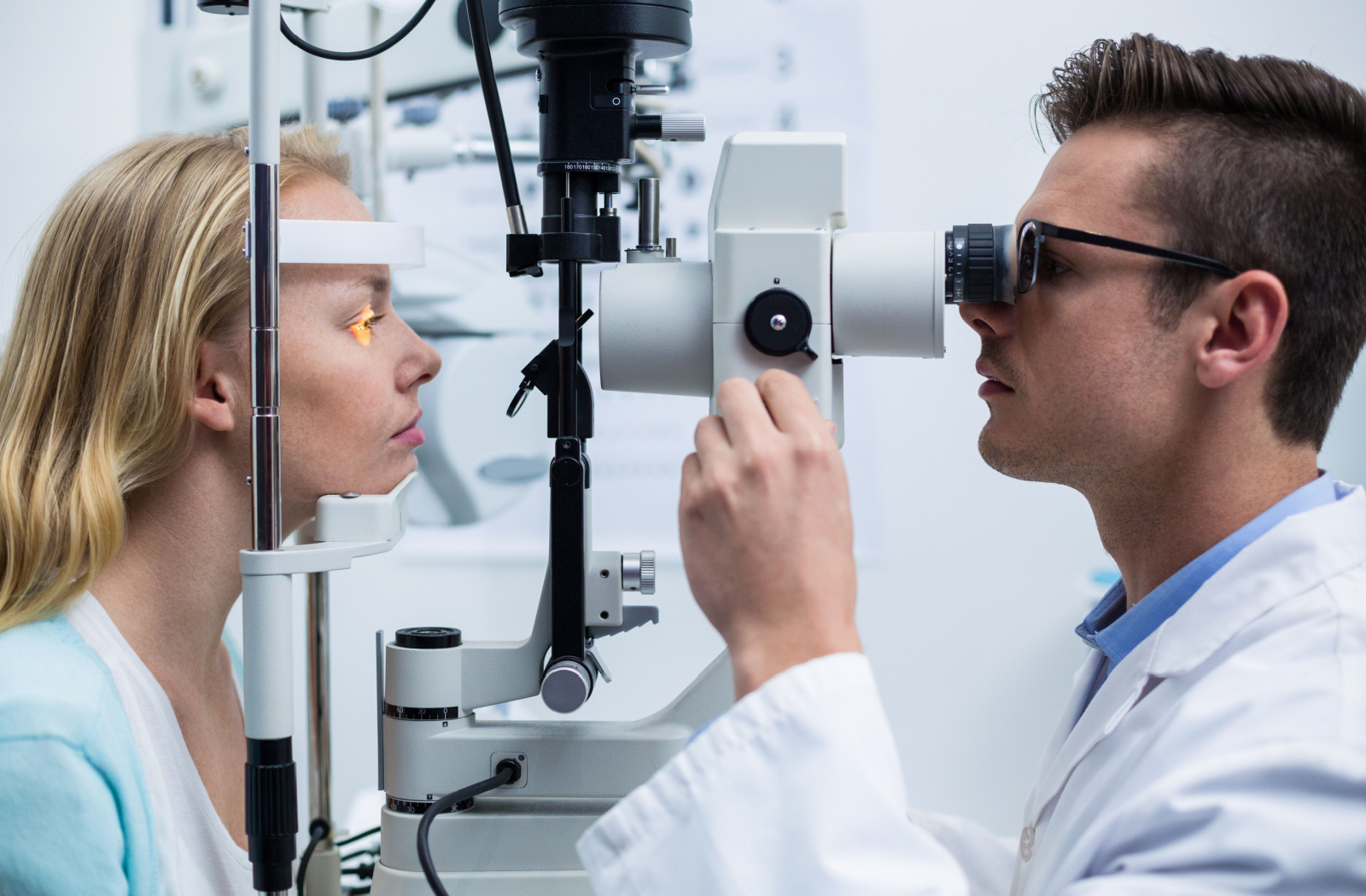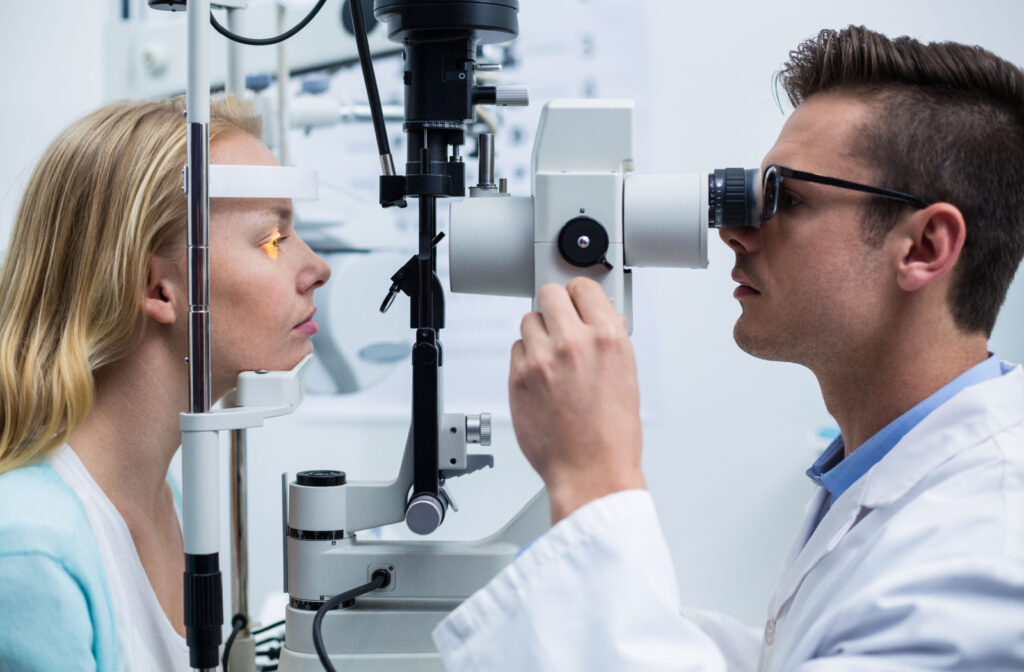A comprehensive eye exam is an important part of maintaining good eye health. It involves a series of tests and evaluations to determine your eyes’ overall health and visual acuity. If this is your first time having an eye exam, you may be wondering how long it will take.
The answer depends on several factors, including your age, medical history, and if you have any pre-existing eye conditions. Generally, a routine eye exam can take 20 minutes to an hour.
Factors That Affect the Duration of an Eye Exam
As mentioned, the duration of an eye exam can vary depending on several factors, such as:
- Age: As we age, our eyes undergo changes that can affect our vision. Therefore, older individuals may require longer and more thorough eye exams compared to younger individuals.
- Medical history: Certain conditions, such as diabetes and high blood pressure, can impact eye health. If you have a history of these conditions, your eye exam may take longer as your optometrist will need to examine the effects on your eyes closely.
- Pre-existing eye conditions: If you have been diagnosed with an eye condition, such as glaucoma or cataracts, your eye exam may take longer, as your optometrist will need to closely monitor and assess the progression of the condition.
- Previous eye exams: If you have had a comprehensive eye exam in the past, it may take less time since your optometrist will already have a baseline understanding of your eye health. However, if any changes or developments have occurred since your last exam, it may take longer to evaluate.
- Type of exam: The type of eye exam you need will also affect the duration. A follow-up appointment typically takes less time than a comprehensive eye exam involving additional tests and evaluations.
What to Expect During an Eye Exam
During a routine eye exam, your optometrist will typically perform the following tests and evaluations:
- Visual acuity test: This basic vision test uses an eye chart to measure how well you can see from a distance.
- Refraction test: This test determines the appropriate prescription for corrective lenses by measuring how light bends as it passes through your cornea and lens.
- Eye movement test: Your eye movements will be evaluated to assess any underlying conditions or issues with eye coordination.
- Eye pressure test: This test measures the pressure inside your eyes and is used to detect potential signs of glaucoma.
- Optomap imaging: Our state-of-the-art technology allows us to capture a detailed image of your retina, providing a comprehensive view of your eye health.
- Additional tests: Depending on your eye health and any symptoms you may be experiencing, your optometrist may also perform additional tests such as a colour vision or visual field test.
Tips for a Successful Eye Exam
For a successful and efficient eye exam, here are some tips to keep in mind:
- Bring your glasses and contacts: If you wear glasses or contacts, make sure to bring them with you to the exam. This will help your optometrist get an accurate assessment of your vision.
- Bring your medical history: Your eye doctor needs to know about any medical conditions or medications you are taking, as they can impact your eye health.
- Know your family’s eye health history: Certain eye conditions tend to run in families, so it’s helpful for your optometrist to know if you have a family history of eye diseases.
- Be prepared to answer questions: Your optometrist will most likely ask you questions about your vision, any symptoms or changes you’ve noticed, and your lifestyle (i.e. how often you use digital devices).
- Ask questions: Don’t be afraid to ask questions during your eye exam. Your optometrist is there to help you and provide information, so feel free to speak up if you have any concerns or want more clarification.
- Be honest: It’s important to be honest with your optometrist about any vision problems or changes you’ve experienced. This will help them make an accurate diagnosis and determine the best course of treatment for you.
- Take a break before the exam: If you’ve been using digital devices or doing close work before your eye exam, give your eyes a break. This will help relax your eye muscles and provide more accurate results during the exam.
- Follow up if needed: If your optometrist recommends further testing or treatment, make sure to follow up in a timely manner. Your eye health is important, so don’t delay seeking further care if needed.
- Get enough rest: Get plenty of sleep the night before your eye exam. This will help make sure that you are well-rested and alert during the exam.

Comprehensive & Personalized Eye Care at Annik Eye Care
At Annik Eye Care, we value your eye health above all else. That’s why our dedicated team is committed to providing you with a comprehensive and personalized eye care experience. When you schedule a regular eye exam with us, our team will thoroughly examine your eyes with a personalized touch and create a customized treatment plan. If you have any questions or concerns about your eye health, our friendly optometrists are here to help. Schedule your eye exam today, and let us help you maintain healthy eyes and clear vision.



